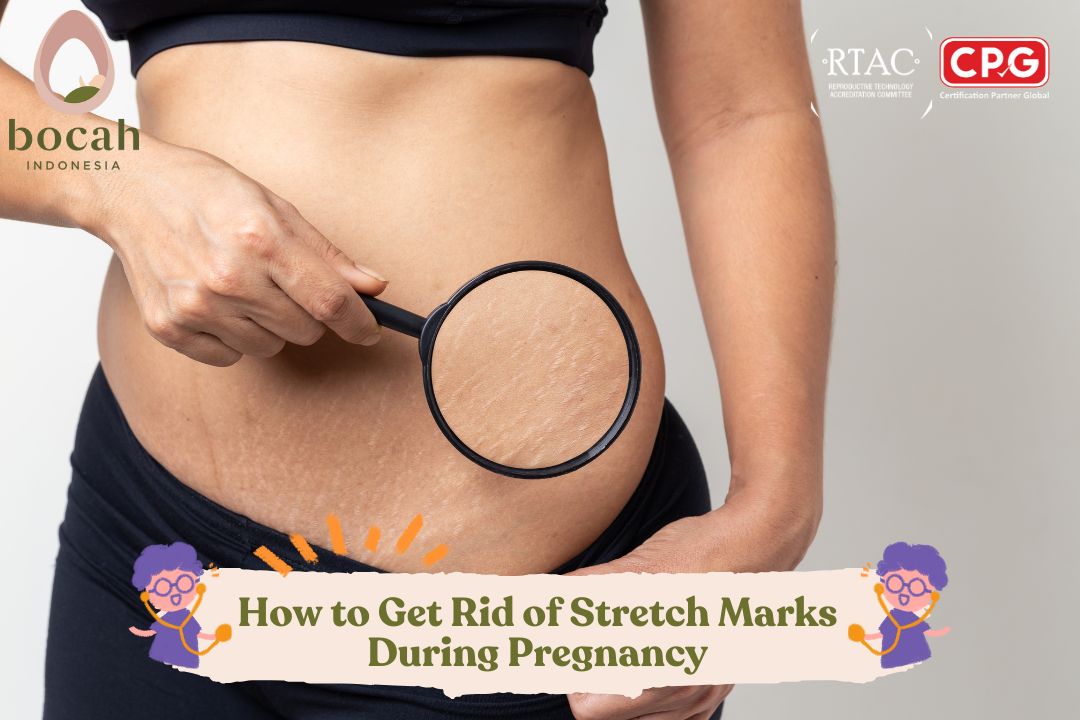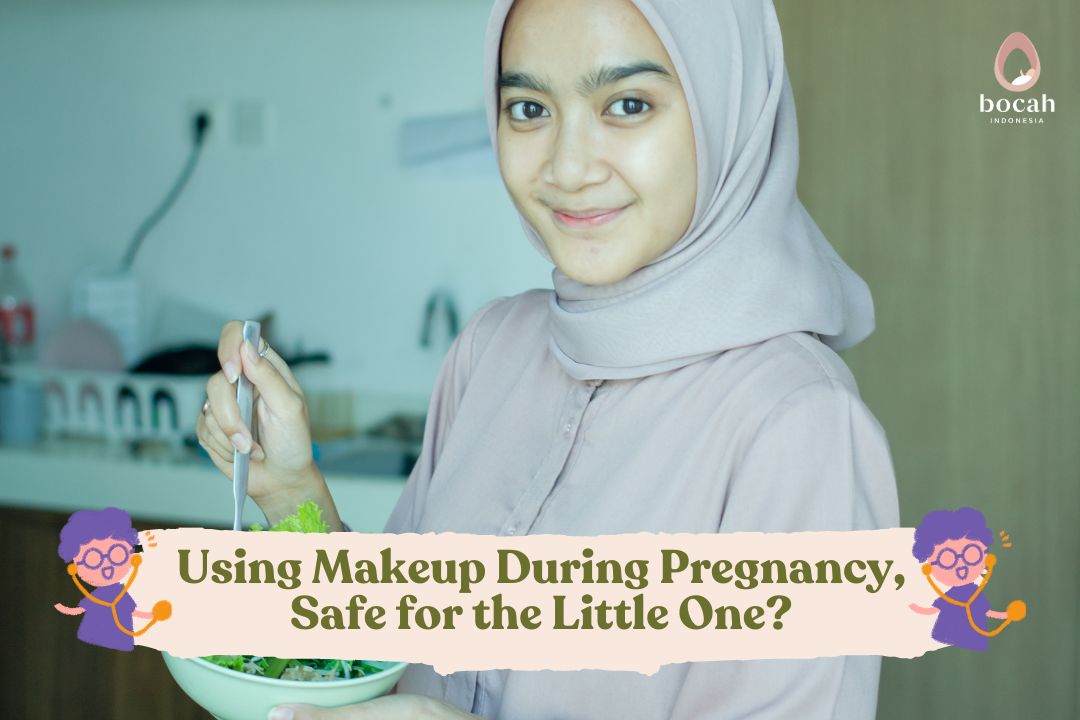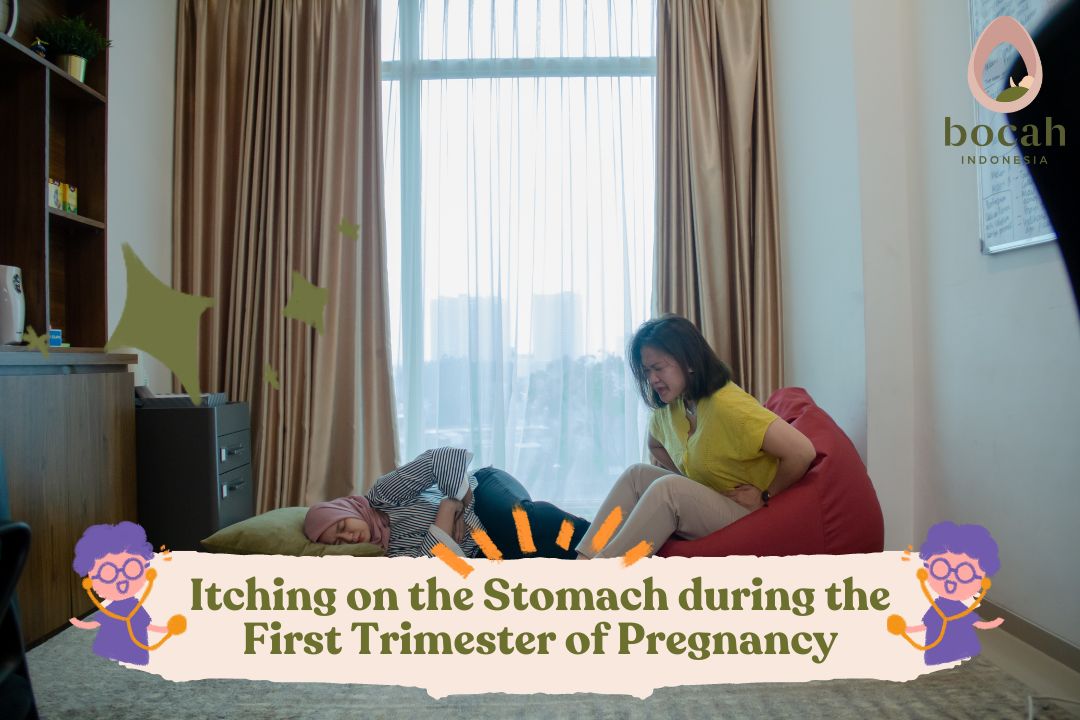How to Get Rid of Stretch Marks During Pregnancy

Stretch marks are a natural condition commonly experienced by pregnant women and women in general due to the stretching of the skin. However, for some pregnant women who may feel self-conscious, there are several ways to address this condition.
Having stretch marks during pregnancy is completely normal. As the body gains weight, the skin stretches to accommodate the physical changes. This stretching can cause the elastic fibers beneath the skin’s surface to tear, resulting in fine lines known as stretch marks.
Stretch marks commonly appear on the breasts, abdomen, buttocks, upper arms, thighs, and hips. They are typically characterized by reddish-purple streaks on the skin’s surface, and in some cases, may be accompanied by itching.
Causes of Stretch Marks
As previously mentioned, stretch marks are caused by skin stretching. The severity of stretch marks varies for each pregnant woman depending on her individual condition. Several contributing factors include:
-
Carrying twins or multiples
Tanya Mincah tentang Promil?
-
Larger fetal size
-
Family history of stretch marks during pregnancy
-
Teenage pregnancy, which causes more pronounced skin stretching
How to Prevent Stretch Marks During Pregnancy
Although stretch marks are common, they can be prevented to some extent. The most important step is to keep the skin well-hydrated and maintain its elasticity. Here are some simple ways to do that:
-
Drink at least 8 glasses of water per day. Remember, fluid needs during pregnancy are higher than usual.
-
Consume a nutritious diet rich in fruits and vegetables. Avoid foods high in fat, sugar, and salt.
-
Engage in regular physical activity, such as prenatal exercise, to help maintain skin elasticity.
-
Apply lotion regularly to keep the skin moisturized, elastic, and supple, and to relieve itching.
-
Take vitamin E supplements or apply vitamin E oil directly to the skin—however, consult your doctor beforehand.
How to Treat Stretch Marks After Childbirth
Stretch marks can also be treated after giving birth. In many cases, stretch marks naturally fade within 6 to 12 months. The initial red or purplish lines may lighten over time and become less noticeable, although their texture may remain.
If the condition persists or causes discomfort, several treatment options are available:
-
Exfoliation with sugar
Sugar exfoliation helps remove dead skin cells and can aid in fading stretch marks. Mix sugar with almond oil or coconut oil and gently massage it onto the skin. This can be done 2–3 times per week for optimal results.
-
Aloe vera gel
The nutrients in aloe vera can help soothe and hydrate the skin, as well as reduce the appearance of stretch marks. Regular application is recommended.
-
Laser treatment
Laser therapy helps reduce the visibility of stretch marks by stimulating collagen production and reducing the appearance of dilated blood vessels through heat exposure.
-
Fractional Radiofrequency (FR)
This treatment involves the delivery of energy into the skin to stimulate collagen growth and replace damaged tissue with new skin. FR is considered effective with minimal side effects. Nonetheless, consultation with a healthcare professional is essential prior to treatment.
While stretch marks may not disappear completely, they can gradually fade over time. The condition is not harmful; however, if you experience discomfort or distress, consult your doctor to explore the most suitable options.
Source:
- Shu, X., et al. (2023). Treatment of Stretch Marks Using a New Formulation Combining Nanofractional Radiofrequency Plus Magnetic Nanofractional Radiofrequency. Dermatol Ther (Heidelb). 2023 Jun; 13(6): 1277–1288.
- Korgavkar, K., Wang, F. (2015). Stretch marks during pregnancy: a review of topical prevention. Br J Dermatol. 2015 Mar;172(3):606-15.
- Kravvas, G., et al. (2019). The use of energy devices in the treatment of striae: a systematic literature review. J Dermatolog Treat. 2019 May;30(3):294-302.










